2nd International Conference
Redefining Community in Intercultural Context RCIC’12
Given the contemporary context of community ‘suffocated’ by society, the authentic forms of ‘living together‘ need to be re-defined. The fluid – even trans-ethnic – community finds undetected ways for its natural flow. Debating on the subject of Redefining Community in Intercultural Context represents one of the trans-disciplinary manners of focusing on this orderly flow.
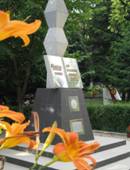
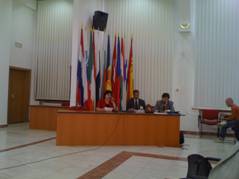
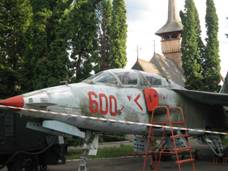
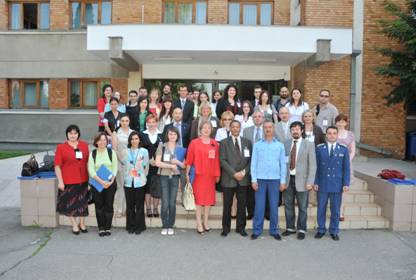
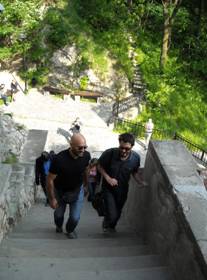
Main goal. The main goal of the Conference is an exchange of experience between teachers, researchers and practitioners in the field of community dynamics. Moreover, we look forward to putting into practice the new ideas that will result from the cross-fertilization of teaching activities and scientific research. Our end-goal is to improve the quality of education and, consequently, personal and intellectual development. Finally yet importantly, we are eager to disseminate the results of our multicultural dialogue within the academic community and beyond.
The location. RCIC’12 will be held at the following venue: “Henri Coanda” Air Force Academy, 160, Mihai Viteazu Street, Brasov 500183, Romania.
Participants. We welcome the participation of teachers, researchers, PhD students, Master’s students and practitioners from Romania and abroad.
Structure of the event.
RCIC’12 will consist of three main parts: plenary session; panels; socializing activities (promoting Romanian customs).
Professor Cornelia ILIE, Ph D – Faculty of Culture and Society, Malmö University,Sweden/ European Society for Transcultural and Interdisciplinary Dialogue (ESTIDIA)
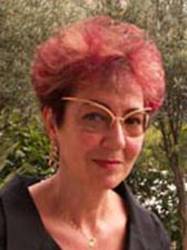
Cornelia Ilie is Professor of English Linguistics, whose research interests focus on Pragmatics, Institutional Discourse Analysis, Intercultural Rhetoric and Argumentation Theory. Professor Ilie is the founder and coordinator of the network ‘Europe and Parliamentary Discourses’ (EPARDIS) as well as the founder and past president of the European Network for Intercultural Education Activities (ENIEDA). She is an associate member of the Centre of Excellence in Political Thought and Conceptual Change (COE PolCon) of the Jyväskylä University, Finland and a board member of IADA (International Association for Dialogue Analysis). She is also a member of the IAU (International Association of Universities) Reference Group of Experts on Higher Education and Education For All. Professor Ilie has published extensively on institutional dialogue strategies, cross-cultural rhetoric and academic writing. Among her recent publications worth mentioning are Language, culture, rhetoric (2004), The use of English in institutional and business settings: An intercultural perspective (Peter Lang 2007) and European Parliament under Scrutiny (John Benjamins 2010). She is a member of the editorial board of several refereed journals and has coordinated several international research projects (e.g. ‘Deliberative Dialogues in Schools’; ‘GENPARDIS (Gender and Parliamentary Discourse Practices’) ’.
Professor Maria Filomena CAPUCHO, Ph D – Centro de Estudos de Comunicação e Cultura – Universidade Católica Portuguesa, Viseu, Portugal.
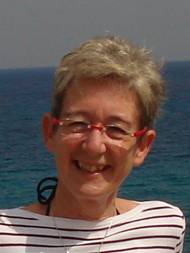
Maria Filomena Capucho is Professor and Researcher at Centro de Estudos de Comunicação e Cultura of the Portuguese Catholic University. Professor Capucho’s major research interest is in intercomprehension. Maria Filomena Capucho has been involved in an ample activity of programs coordination and evaluation. She has been an expert evaluator within the Socrates program, a member of the expert team in issues of Multilingualism of the DG Education, Formation et Multilinguisme of the European Commission, and a UN consultant for the Language and Communication Programme. Professor Capucho also participated in numerous European projects and programs, such as Fasten Seatbelts to the world Sail, Intercom, Chain Stories etc, and coordinated the projects Exchange to Change, EU&I, Diálogos em Intercompreensão and the European network Redinter. She currently being the Major Coordinator of the projects Cinco and Intermar.
Gabriel-Florin MOISESCU
- „Henri Coanda” Air Force Academy, Brasov, Romania, rector |
Alina BÂRGĂOANU
Elena BUJA
Diana CISMARU
Ella CIUPERCĂ
Nicoleta CORBU
Alberto FORNASARI
Giuliana GARZONE
Dorina GUŢU
Diana ILIŞOI
Ingrid KELLER-RUSSELL
Paul L. LANDRY
Lachlan MACKENZIE
Vasile MACOVICIUC
Dana POPESCU-JOURDY
Angel RALUY ALONSO
Maria de SÃO-JOSÈ CORTE-REAL
Asher SHAFRIR
Malgorzata SUSZCZYNSKA
Andreea SZILAGYI
Bledar TOSKA
Jef VERSCHUEREN
Virgil BORCAN
Aura CODREANU
Deadlines
- submission of abstracts for review: February, 24th, 2012
- notification of abstract acceptance: March, 16th, 2012;
- confirmation of payment fee: April, 6th, 2012;
- submission of complete papers: April, 27th, 2012.
Please use the attached camera-ready template.
100 €
The fee will cover the printed proceedings and proceedings on CD, the cocktail, the official dinner and sightseeing activities.
Details regarding the registration fee/payment will be sent via e-mail to those whose articles have been accepted.
- Security and Intercultural Communication (NEW)*;
- Communication and Identity;
- Communication and the New Technologies;
- Military Intercultural Communication;
- Philosophy of Culture ;
- Intercultural Education;
- Intercultural Management;
- Linguistics and Semiotics;
- Discourse Analysis;
- Counseling and Mediation.
After having submitted the conference papers in anticipation, the topics will be discussed in panels. All new ideas arising from these discussions will subsequently be used as a starting point for similar events.
*Note: We have analyzed comments, suggestions and proposals made by participants in the previous conference. Hence, the 2012 Conference will include a panel entitled “Security and Intercultural Communication”, mainly due to reconfigurations of intercultural nature in some of the states with solid democratic tradition.
The conference is also featuring the following workshop, proposed by the European Society for Transcultural and Interdisciplinary Dialogue (ESTIDIA):
ESTIDIA workshop
Critical dialogue revisited: Challenges and opportunities
As language users, we are engaged in an ongoing dialogue whereby we are negotiating and co-constructing meaning in different socio-cultural contexts, at different discourse levels, and for different purposes. Exchange and confrontation of ideas, argumentation practices and critical questioning are primarily conveyed through a variety of varying forms of dialogue, involving both local and global participants.
A primary goal of this workshop is to reflect on the state-of-the-art regarding European and international expertise on dialogue as an art, an interaction technique, a scientific method of enquiry and a problem-solving tool. It is an invitation to explore and discuss the nature, scope and role of language and communicative interaction mechanisms in reflecting and shaping ideas, cultural identities and cross-cultural relationships through dialogue.
The workshop is intended as a truly multicultural and interdisciplinary gathering of researchers, practitioners and students. The following are just some of the topics we propose to explore:
- dialogue connecting teaching and research creativities
- dialogue facilitating cross-fertilization of European and global experiences in academic mentorship
- dialogue promoting collaborative exploratory projects, joint training programs
- dialogue fostering creative and critical thinking
- dialogue between languages and cultures (e.g. in translation, interpreting)
- dialogue facilitating correlations between different disciplines
- dialogue integrating different scientific and cultural traditions.